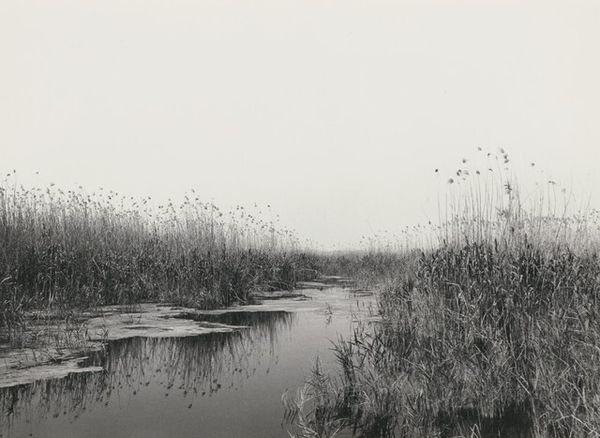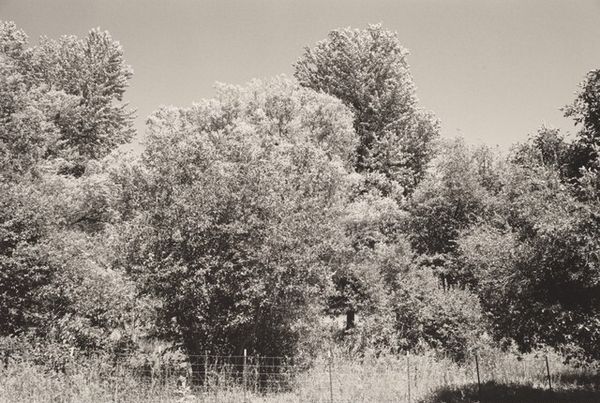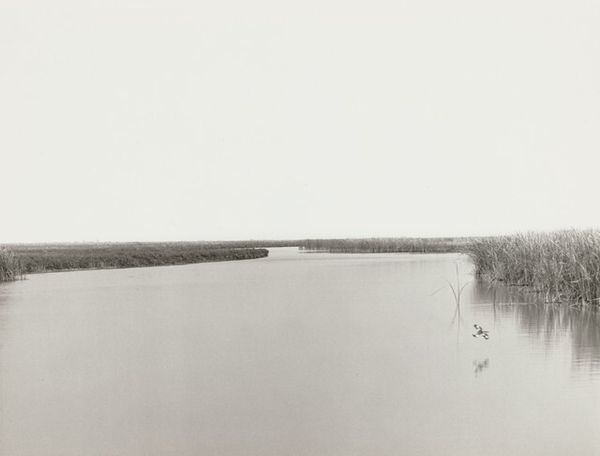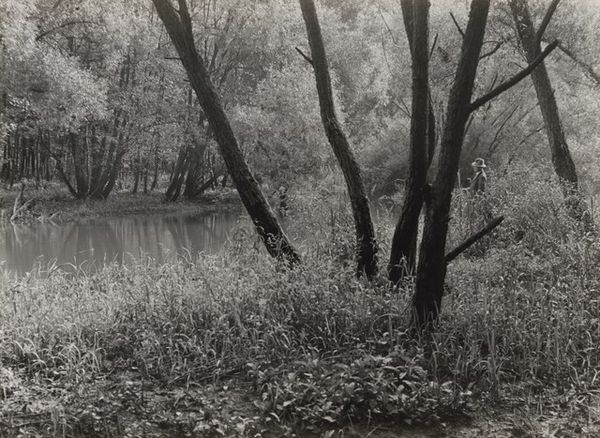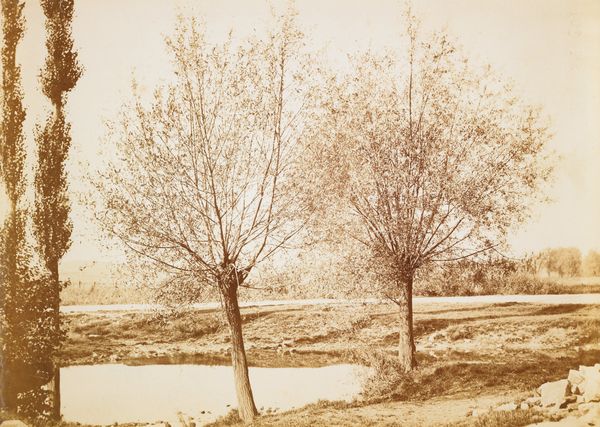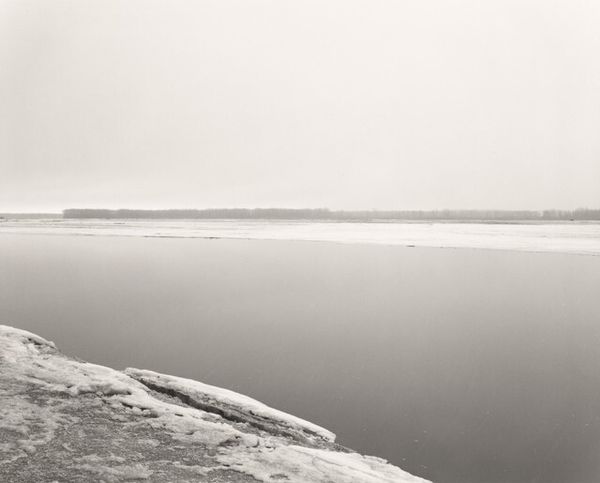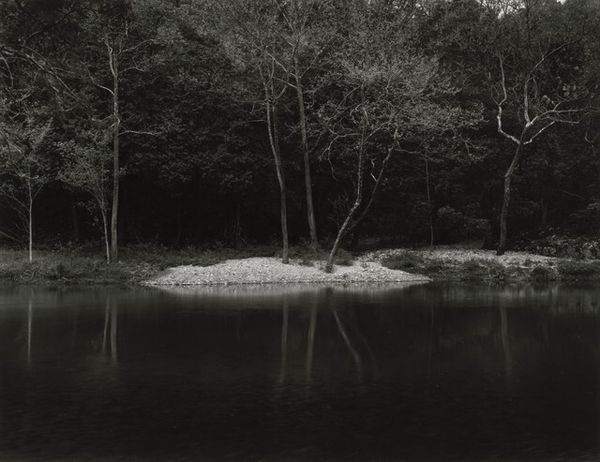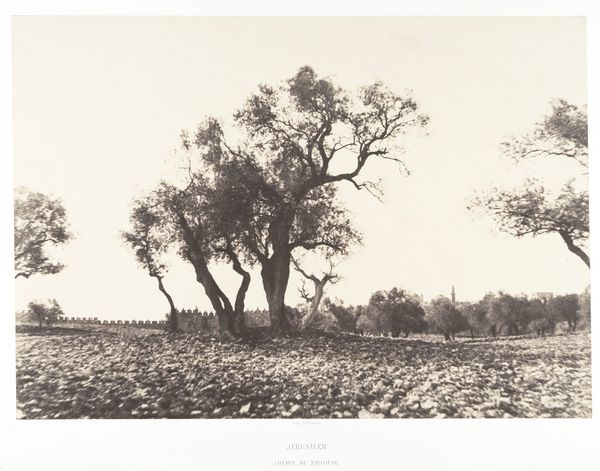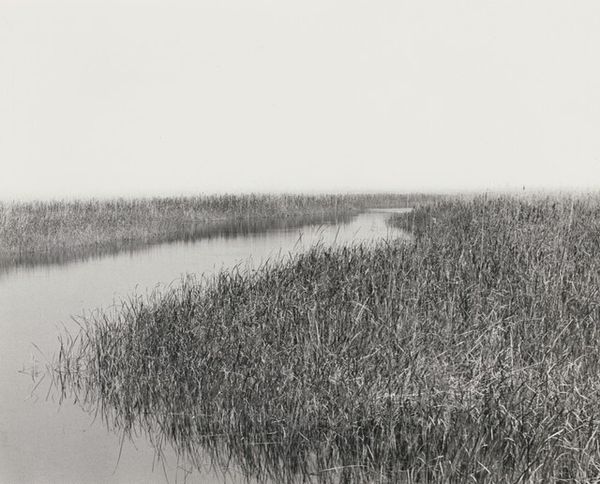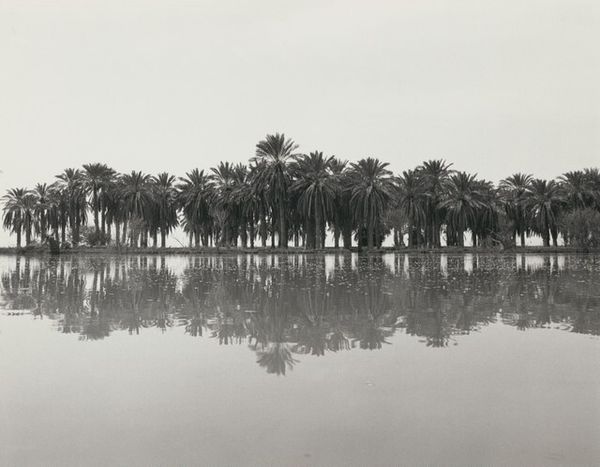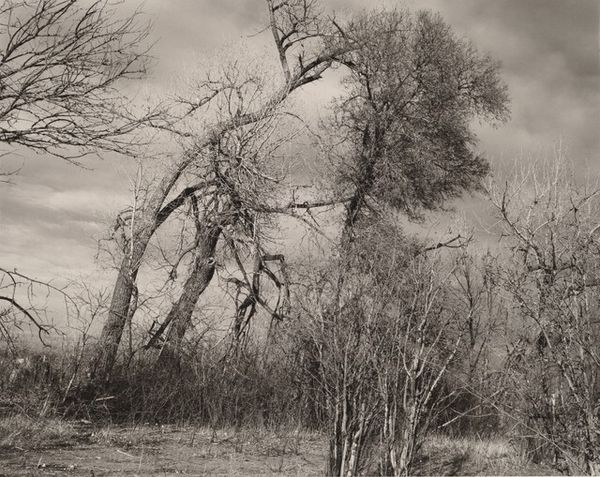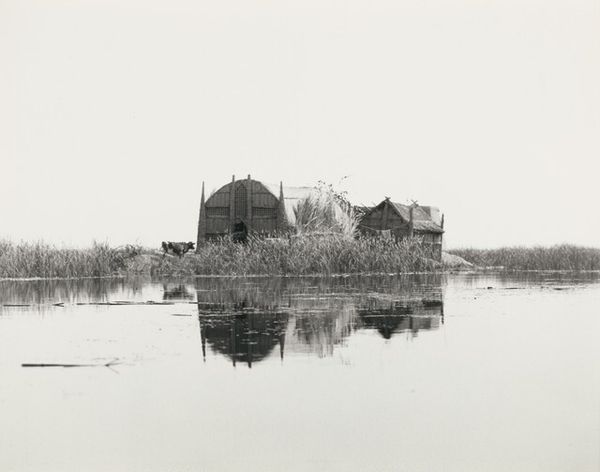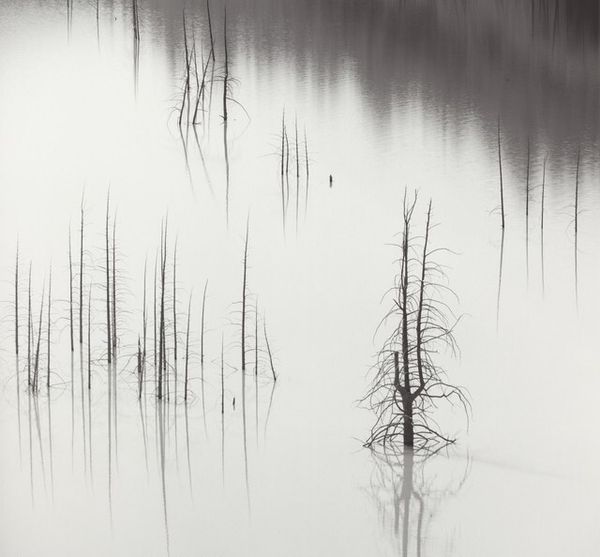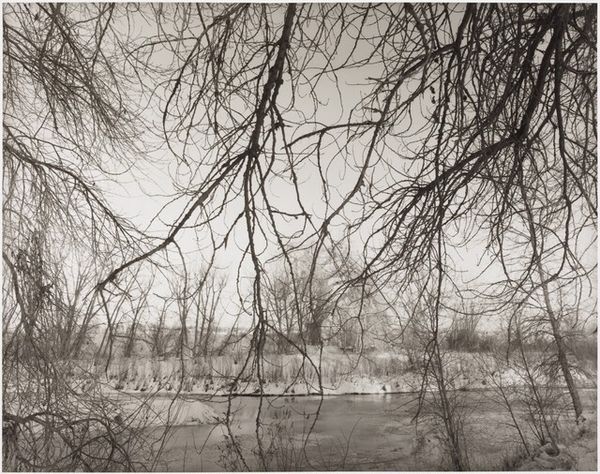
A farm pond about to be destroyed by earth-moving machinery, the north edge of Denver, Colorado Possibly 1973 - 1981
0:00
0:00
photography, gelatin-silver-print
#
conceptual-art
#
black and white photography
#
landscape
#
black and white format
#
photography
#
gelatin-silver-print
#
monochrome photography
#
monochrome
Dimensions: image: 22.9 × 29.2 cm (9 × 11 1/2 in.) sheet: 27.7 × 35.4 cm (10 7/8 × 13 15/16 in.)
Copyright: National Gallery of Art: CC0 1.0
Editor: Here we have Robert Adams's photograph, "A farm pond about to be destroyed by earth-moving machinery, the north edge of Denver, Colorado," possibly taken sometime between 1973 and 1981. It's a gelatin-silver print. The reflections in the water are almost ghostly. What stands out to you? Curator: I am struck by how this seemingly simple landscape belies a complex story of labor and environmental transformation. The materials themselves – the gelatin silver, the paper, the photographic process – speak to a specific era of industrial production and its impact on the American West. Editor: Impact in what sense? Curator: Consider the title itself. "About to be destroyed…" This isn’t just a photograph of a pretty pond. It’s documentation, or even evidence, of the violent disruption of natural resources driven by economic imperatives. The earth-moving machinery, though absent from the frame, is ever-present, informing our reading of the scene. How does the stark black and white photography affect your understanding? Editor: It definitely emphasizes the bleakness, that something’s being lost. Was this a common subject for Adams? Curator: Adams often focused on the evolving relationship between people and the environment. This piece serves as a potent comment on the social costs associated with progress and development. It challenges the conventional, often romanticized, depiction of the landscape. By focusing on the materiality of both the photograph and its subject, the photograph critiques an economic system that privileges expansion over sustainability. Editor: I hadn't thought about it that way, but focusing on the making and unmaking of the land, as recorded through the gelatin-silver print really brings that home. Thanks! Curator: My pleasure! Reflecting on the image and its production illuminates our understanding of value in contemporary art and life.
Comments
No comments
Be the first to comment and join the conversation on the ultimate creative platform.
